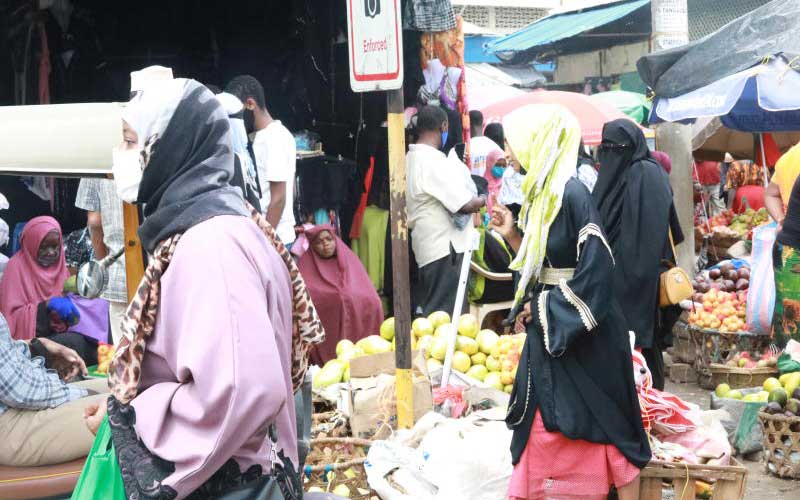×
The Standard e-Paper
Home To Bold Columnists

Residents of Old Town in Mombasa go about their activities on Tuesday without regard to social distancing, one of the measures employed to fight coronavirus. [Kelvin Karani, Standard]
The Government yesterday made good its threat for tougher measures on Covid-19 hotspots and ordered a shutdown of Mombasa’s Old Town after the area recorded 18 new infections.